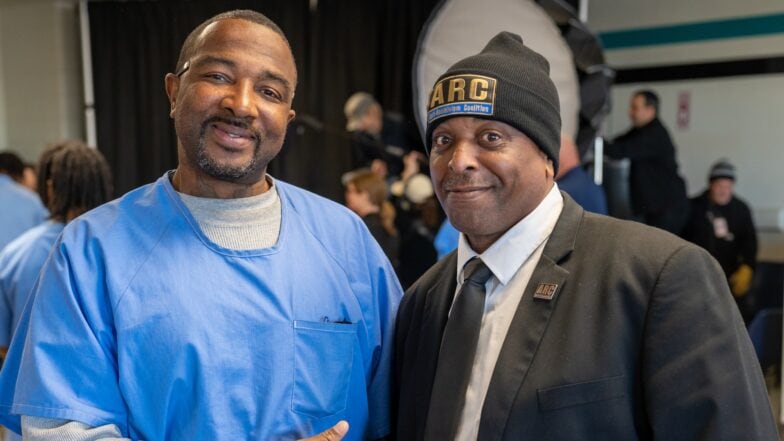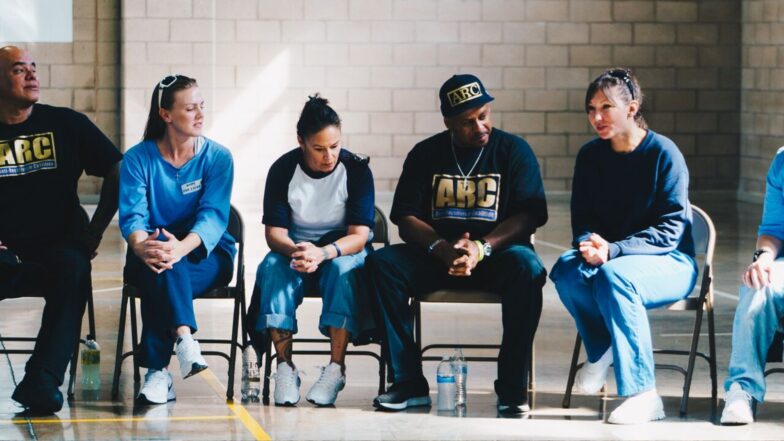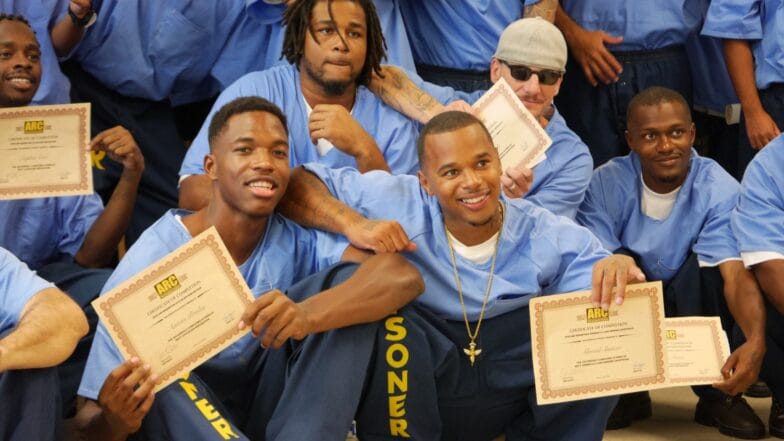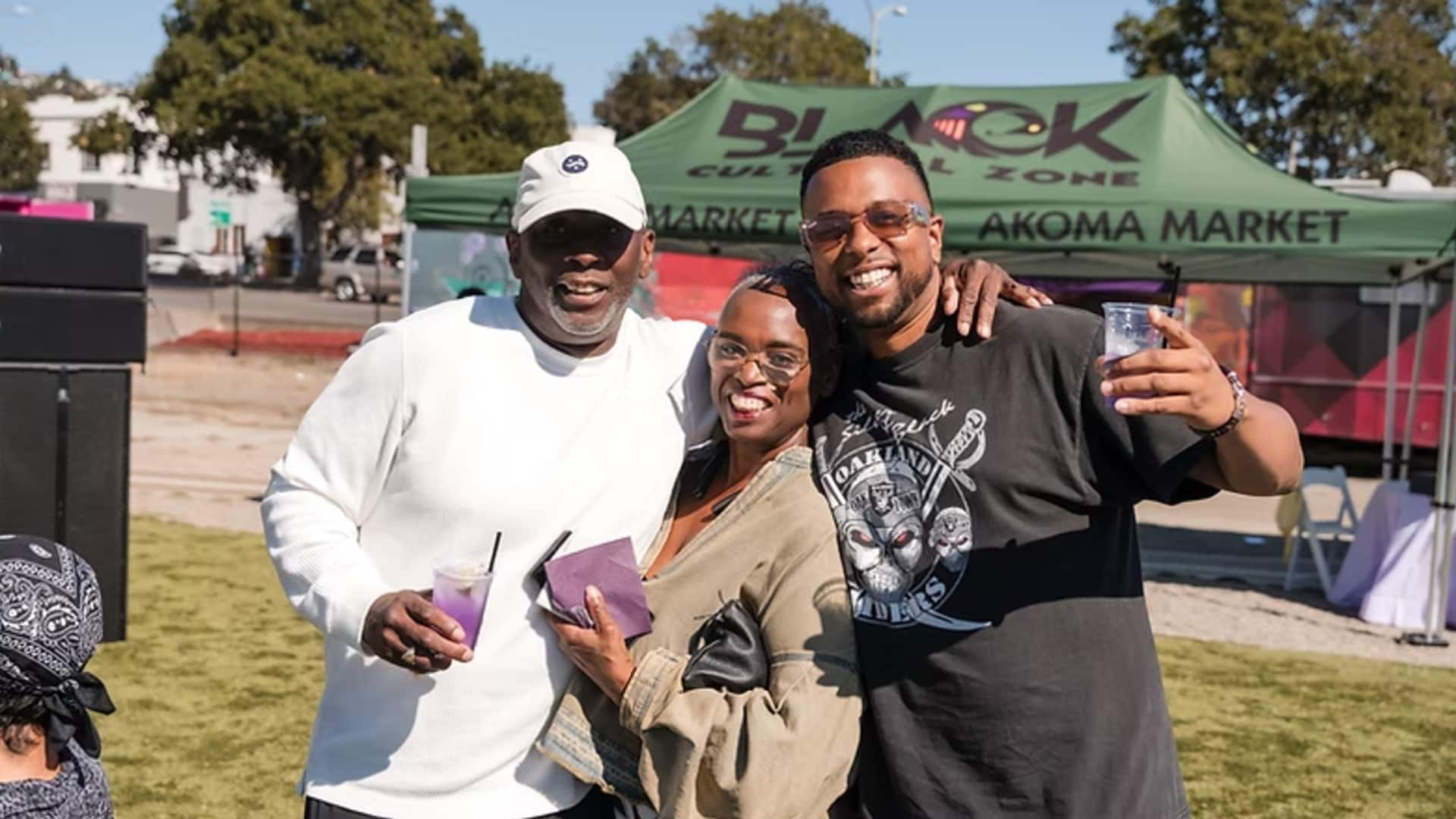
A Movement Built by Those Most Affected
Founded in 2013, the Anti-Recidivism Coalition (ARC) has grown from a small community of formerly incarcerated advocates into a transformative statewide network supporting individuals through every stage of reentry, from the prison gate to full reintegration into society. With offices in Los Angeles and Sacramento and nearly 200 staff members, 80% of whom are formerly incarcerated, ARC operates with one core mission: to end mass incarceration and create a more just and equitable society.
Through its partnership with the NBA Foundation, ARC is furthering that mission by expanding critical reentry services and leadership pathways for formerly incarcerated individuals across California, many of whom return home after years or decades behind bars. “We’re not just preparing people to come home,” said Ben Lear, ARC’s Director of Communications. “We’re making sure that when they do, they’re supported holistically by people who’ve walked that same path.”

ARC members take on the rapids during an annual whitewater rafting trip, an opportunity for connection, joy and healing.
A Human-Centered Reentry Model
ARC’s reentry services begin the moment someone steps out of prison. Through its Ride Home program, newly released individuals are picked up by a fellow formerly incarcerated person, taken for their first meal, and connected with essentials like clothing, housing, and transportation. From there, members are matched with a life coach, offered free therapy, and enrolled in career-readiness programs.
Among the standout programs is the Second Chance Pre-Apprenticeship, which trains members for union-backed careers in the building trades, placing them on major infrastructure projects across Southern California. Another new initiative is a training cohort for electric vehicle maintenance, reflecting ARC’s commitment to preparing its members for jobs in emerging industries. These are not just transitional jobs but long-term, high-wage union careers that can change the trajectory of a member’s life.
In addition to career programs, ARC holds monthly community events, including hikes, support meetings, and even a whitewater rafting trip offering members, many of whom spent years or decades incarcerated, a chance to experience joy, connection and normalcy.

A moment of connection through shared experience, supporting each other on the journey toward healing and opportunity.
From the Yard to the Frontlines
A defining part of ARC’s model is the Hope and Redemption Team (HART), a group of formerly incarcerated leaders who return to state prisons and juvenile halls to run inside programming, mentor others, and offer a roadmap to rehabilitation. Many HART members go back into the same facilities they were once incarcerated in. “It takes courage to come home after all those years and say, ‘I’m going back, not because I have to, but because I want to help someone else find freedom,’” said Lear.
This credible messenger model allows ARC to connect on a deeper level with incarcerated individuals and guide them through the same work that helped bring their own transformation.

ARC participants celebrate their achievements, one of the many milestones for new opportunities.
Advocacy and Impact at Scale
What started as a volunteer group visiting Sacramento has evolved into a professional policy and advocacy team. ARC has co-sponsored more than 30 pieces of legislation since 2013, many of which have directly resulted in thousands of individuals receiving sentence reductions or new parole opportunities.
ARC’s member-driven approach has helped pass laws informed by lived experience, focusing especially on youth sentenced as adults and the brain science that supports second chances for people under 26.
The organization also runs its Transition Age Youth (TAY) program, serving 18- to 25-year-olds who were sentenced in juvenile court and are now returning home.
How to Support ARC
ARC’s work isn’t just about systems, it’s about people. Many of its staff began as members, volunteers, or program participants. Their journeys from incarceration to advocacy are central to ARC’s success.
To support ARC beyond financial donations, visit antirecidivism.org and fill out the “Get Involved” form. Volunteers can help with legislative outreach, amplify ARC’s message on social media, or simply share its mission with others who believe in the power of redemption.
“Every time someone walks out the prison gate and into our arms, it’s a reminder that change is possible,” Lear said. “And we’ll keep showing up, because someone once showed up for us.”









